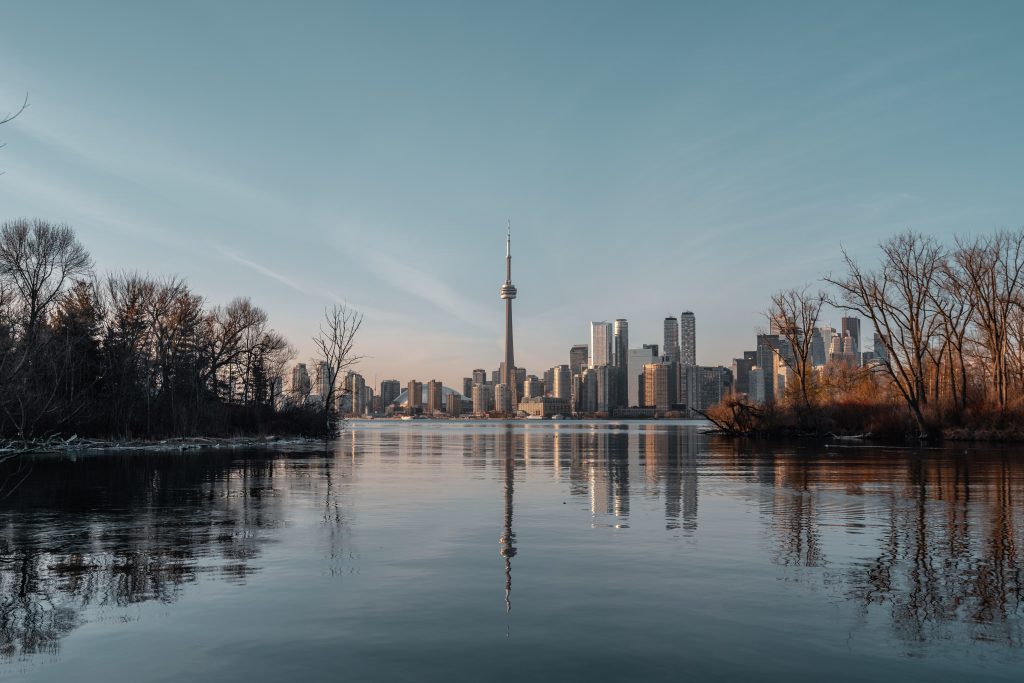
New collaboration between the Urban Policy Lab and the Institute on Municipal Finance and Governance answers key questions about policymaking and government
Who do you call when you want to speak to someone about an unfilled pothole? Or when it snows and the road outside your grandparents’ home isn’t plowed and salted? Who is responsible for mining permits being issued on Indigenous lands in northern Ontario? In the face of complex government reports and endless feedback loops on complex websites at the federal, provincial, and municipal levels, it’s no surprise most people lack clarity on where their tax dollars are going, or who to call to address their concerns.
 The Munk School’s Urban Policy Lab and the Institute on Municipal Finance and Governance (IMFG) hope to change this with their upcoming “Who Does What?” (WDW) series. What started as a standalone essay investigating funding for local services across Canada has grown into a collection of papers covering 12 key policy sectors. The WDW series brings together academic experts, industry practitioners, and student researchers to put together an in-depth investigation into how different levels of government intersect with policy areas. In other words, they want to answer the question, “So, who’s in charge of what?”
The Munk School’s Urban Policy Lab and the Institute on Municipal Finance and Governance (IMFG) hope to change this with their upcoming “Who Does What?” (WDW) series. What started as a standalone essay investigating funding for local services across Canada has grown into a collection of papers covering 12 key policy sectors. The WDW series brings together academic experts, industry practitioners, and student researchers to put together an in-depth investigation into how different levels of government intersect with policy areas. In other words, they want to answer the question, “So, who’s in charge of what?”
“The ‘Who Does What?’ series is a true collaboration between IMFG and the Urban Policy Lab, a great example of different parts of the Munk School working together to produce important research,” says Gabriel Eidelman, director of the Urban Policy Lab. “Every paper in the series includes a primer co-authored with students from the Lab, which both helps students learn about the intergovernmental dimensions of urban policymaking, and sets the table for our expert contributors.”
Kinza Riaz, a first-year student in the Master of Public Policy (MPP) program, is part of the research team for the WDW series’ first topic: housing. As part of Riaz’s role, she researched and compiled information on the issue of Ontario housing, breaking down the policy domain into three key areas: rental housing, social housing, and homelessness. Riaz also looked at how different independent municipal actions collaborated with other orders of government. “My main takeaways were really that policymaking is much more complex than I had initially realized. I’m really glad that this project focused on the municipal lens of policymaking in a housing context since I had really underestimated the role that local governments play in the process.”
Tomas Hachard, manager of programs and research at IMFG, hopes that the series educates the general public on complex legislative operations and decisions. “Sometimes what is lost is that there is a lot of action happening in these policy areas. What the municipalities are doing might get lost because of the focus on the province and vice versa. We want to highlight some of the work that’s being done and where.” Having a combination of academic, practitioner, and student voices on the team helps the series to be socially relevant and connect academic themes with lived experiences. From TTC delays to rising housing prices, the push for better services starts from knowing where to direct responses and lobbying efforts.
The organizers also hope to use the series to bridge the gap between governments and their constituents by clearly outlining the role each level of government should be playing in these key issues. In particular, Hachard wants to highlight the role municipalities play not just in delivering services, but also in planning and participating in policymaking.
“When we think about inter-governmental cooperation or tensions, we think largely about the federal and provincial level,” says Hachard. “One of the purposes of the series is to show how municipalities are already doing a lot of work in the biggest issues we’re facing, like climate change or housing.”
By carefully outlining the work that’s being done, the Urban Policy Lab and IMFG hope that policymakers will become inspired to think of new policy ideas for how to better coordinate with other branches of government.
The first policy essay on housing will be released on the IMFG website on April 5, 2022.

